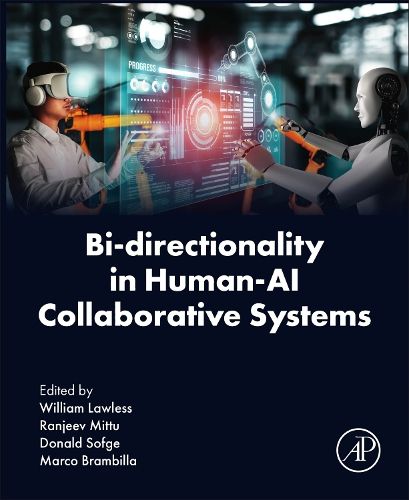Readings Newsletter
Become a Readings Member to make your shopping experience even easier.
Sign in or sign up for free!
You’re not far away from qualifying for FREE standard shipping within Australia
You’ve qualified for FREE standard shipping within Australia
The cart is loading…






Bi-directionality in Human-AI Collaborative Systems investigates the foundations, metrics, and applications of human-machine systems, along with the legal ramifications of autonomy, including standards, trust by the public, and bidirectional trust by users and AI systems. The book addresses the challenges in creating synergistic human and AI-based autonomous system-of-systems by focusing on the underlying challenges associated with bi-directionality. Chapters cover advances in LLMs, logic, machine learning choices, the development of standards, as well as human-centered approaches to autonomous human-machine teams. This is a valuable resource for world-class researchers and engineers who are theorizing on, designing, and developing autonomous systems.
It will also be useful for government scientists, business leaders, social scientists, philosophers, regulators and legal experts interested in the impact of autonomous human-machine teams and systems.
$9.00 standard shipping within Australia
FREE standard shipping within Australia for orders over $100.00
Express & International shipping calculated at checkout
Bi-directionality in Human-AI Collaborative Systems investigates the foundations, metrics, and applications of human-machine systems, along with the legal ramifications of autonomy, including standards, trust by the public, and bidirectional trust by users and AI systems. The book addresses the challenges in creating synergistic human and AI-based autonomous system-of-systems by focusing on the underlying challenges associated with bi-directionality. Chapters cover advances in LLMs, logic, machine learning choices, the development of standards, as well as human-centered approaches to autonomous human-machine teams. This is a valuable resource for world-class researchers and engineers who are theorizing on, designing, and developing autonomous systems.
It will also be useful for government scientists, business leaders, social scientists, philosophers, regulators and legal experts interested in the impact of autonomous human-machine teams and systems.